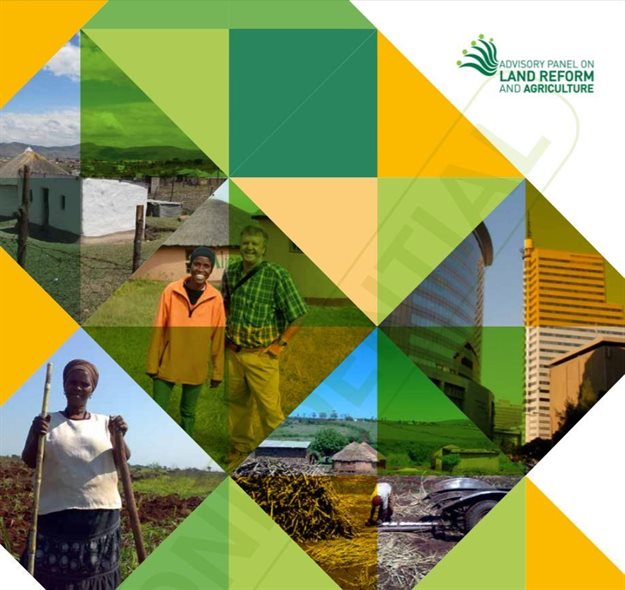The Presidential Expert Advisory Panel on Land Reform and Agriculture has proposed for the amendment of the Constitution that clarifies that expropriation without compensation may be necessary in limited circumstances. The recommendations, which are contained in the panel's final report, was released on Sunday, 28 July.
President Cyril Ramaphosa in September last year appointed the panel to support the work of the Inter Ministerial Committee (IMC) on Land Reform and to advise the IMC on a broad range of policy matters associated with land reform, including restitution, redistribution, tenure security and agricultural support.
Delivering the report, panel chairperson Dr Vuyo Mahlati said the panel over the time met and discussed with relevant ministers and experts on several platforms.
Panel members were Prof Ruth Hall, Prof Mohammed Karaan, Adv Tembeka Ngcukaitobi, Bulelwa Mabasa, Dr Thandi Ngcobo, Wandile Sihlobo, Daniel Kriek, Thato Moagi and Nick Serfontein.
“It was incumbent on each member of the panel to hear the cries of the majority of our ancestors who were dispossessed of the land of their birth through blood shed and untold pain, but to also be mindful of the hopes and dreams of our future generations for a just, prosperous and egalitarian country.
“The premises of the work undertaken by the panel is the firm belief that land reform could enable social cohesion, deliver social justice and restore dignity to the majority of people of our country,” Mahlati said.
Inclusive growth and sustainable development
The panel, she added, also believed that land reform can contribute to inclusive growth and sustainable development. She said the panel was hopeful that the recommendations contained in the report would contribute to expediting land reform objectives as directed by the Constitution.
In its findings, the panel in the report said critical issues of land hunger, insecurity of tenure with the majority land rights that are not legally recognised in both rural and urban areas, are threatening stability, inclusive growth and development.
With 80% of urban dwellers residing on only 2% of the country’s land, a radical shift was required in land reform trajectory, the panel found.
“This is exacerbated by government’s reluctance, we believe, to address communal tenure and underdevelopment of communal areas perpetuating the marginalisation of women, the rural poor and the communal farmers, in general,” she said.
The report provides recommendations for immediate action, among these is the allocation of land, building on and refocusing private partnerships and strengthening of food systems and rural urban linkages.
The report further calls for a consolidated national land reform policy framework with a new whitepaper that will address current gaps to include urban land, address spatial transformation and climate change.
“The framework must also add land administration as the fourth pillar, retaining and strengthening land restitution, redistribution and tenure, as indicated in the 1997 land national land policy,” Mahlati said.
In the report, the panel calls for the expedition and refocus of land reform to address inequality and historical injustices.
“South Africa has made world headlines as the most unequal country. The report attributes the persisting inequalities to the manner in which land is owned, managed and transacted.”
The panel in the report urges Ramaphosa and cabinet to expedite land reform by using all its powers to resolve all outstanding land restitution claims, release acquired private land and much more effectively identify privately owned land needed for redistribution.
Land redistribution without compensation
Regarding land redistribution without compensation, the majority of panel members endorsed the proposed policy shift towards using provisions of the Constitution.
“The majority of the panel felt it is an inescapable fact that Section 25 of the Constitution is compensation centric… it draws from global examples where it is inextricably linked to some form of compensation. The panel has therefore offered a proposal for a constitutional amendment that clarifies that expropriation without compensation may be necessary in limited circumstances, and we do indicate those circumstances,” she said.
The panel said some members felt compensation may be zero in justifiable circumstances.
Another recommendation was for the Department of Agriculture, Land Reform and Rural Development to finalise the database of applications under the land reform labour tenants of 1996 and prepare a proper time-bound and publicly available plan for implementation.
“We call on parliament to monitor implementation of this plan and to amend regulation to the act addressing labour tenants and restitution claims. Those whose claims have been lost must have an opportunity to resubmit and the department must identify claims where expropriation may be used to break the deadlock,” Mahlati said.
As a game changer to land reform, the panel proposed a bold approach of recognising and recording the varying tenure rights that exist in the country, saying 60% of land rights in South Africa were not recorded or recognised.
The panel in the report also calls for the reform of the Land Claims Court, the establishment of a Land Reform Fund that will bring together state and private finance to support land reform – both the acquisition of land and support for beneficiaries thereafter.
The panel also recommended the development of a donations policy which encourages landowners to donate properties, or part of their properties, by offering exemptions from donations tax, and carrying the conveyancing costs of land transfer.
Read the full report here.




































